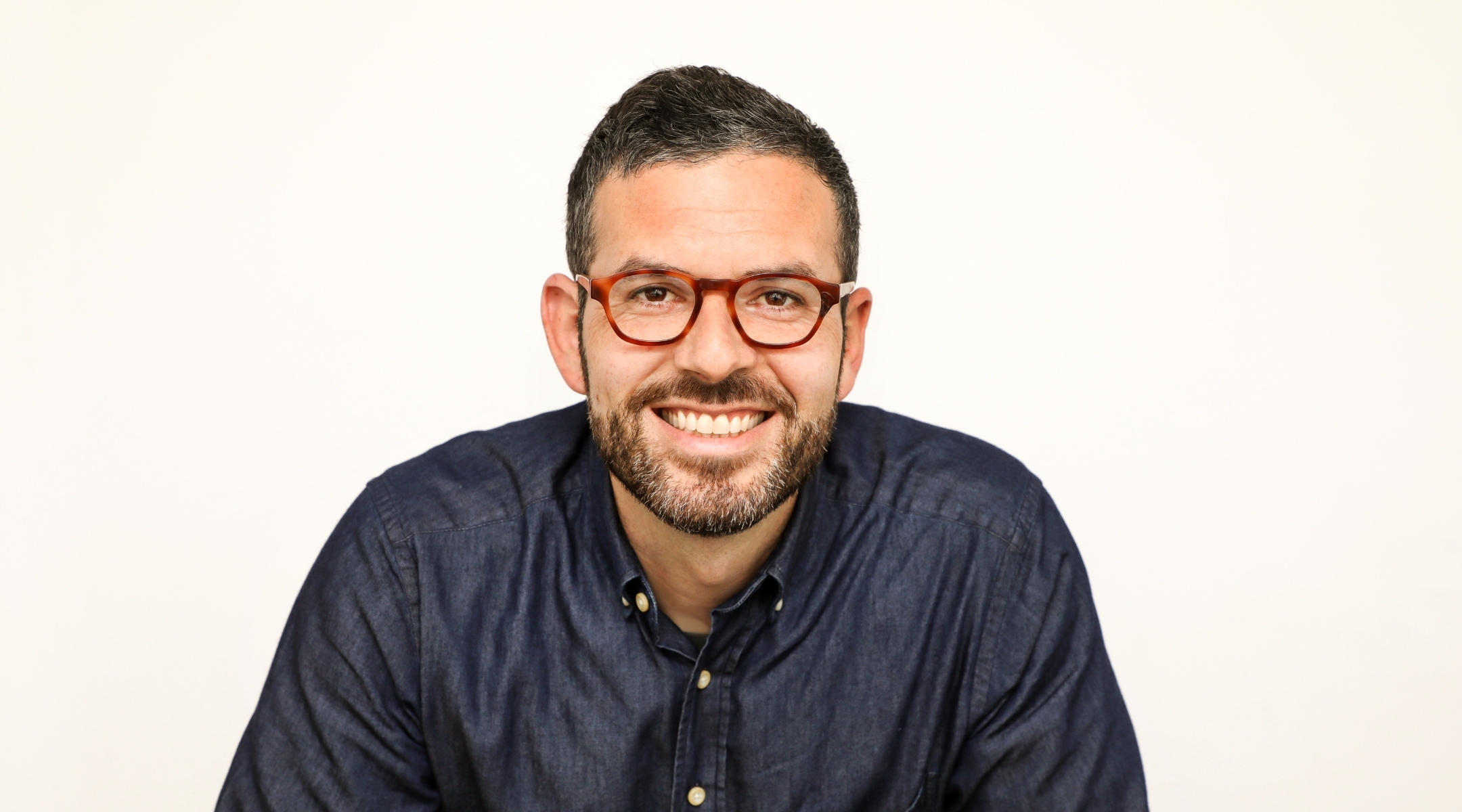Hadar Institute to open California outpost, bringing its egalitarian Jewish learning to the West Coast

Rabbi David Kasher will be the director of the new Hadar West Coast. (Courtesy Hadar Institute)
(JTA) — The Hadar Institute, an egalitarian Jewish educational institution, has announced that it will open a branch in California, the latest stage in the New York City-based organization’s international expansion.
The organization has tapped the former associate rabbi of Ikar, a nondenominational synagogue and community in Los Angeles, to lead the venture, which will be based jointly in Los Angeles and San Francisco.
Hadar was founded in 2006 and, since 2021, has launched branches in Boston, Chicago and Washington, D.C., and opened a permanent space in Jerusalem. Its rapid growth comes at a time of flourishing informal Jewish education initiatives while formal centers of Jewish study, rabbinical schools, are shrinking.
Los Angeles is home to two denominational rabbinical schools: the Reform Hebrew Union College, which recently went from three campuses to two, and the Conservative Ziegler School of Rabbinic Studies. Ziegler recently sold its 35-acre campus, shortened its program and slashed tuition in an attempt to attract more students.
Hadar West Coast, as the California initiative is called, will have a different focus: partnering with Jewish community educators and leaders in both cities to provide programming for locals. That could mean a day of learning in conjunction with a synagogue or Jewish community center, or a specific event that Hadar organizes itself at the behest of community members.
“I see, all the time, people who are hungry for more learning, for some kind of guide or path or direction for exploring their own Jewish tradition, and really not knowing where to go next,” said Rabbi David Kasher, who will be leading Hadar West Coast. “We have some great rabbinical schools in Los Angeles. There are some great Jewish schools and institutions, that kind of higher learning. But there isn’t necessarily an obvious place to go to just begin that journey if you’re an adult and a spark is lit in you.”
Educating both lay leaders and people who work in Jewish settings has historically been the mission of Hadar, which sees more than 29,000 people annually participate in its in-person and online events and learning opportunities. Those range from a months-long intensive fellowship to seminars and individual classes. Its first class of rabbis will graduate in June — the culmination of an ordination program begun in 2019.
Kasher feels that his background and experience suit him to his new role, in which he will travel regularly from his home in Los Angeles to Hadar’s programs in the Bay Area, where he grew up. Kasher’s father came from a Hasidic family and he describes his mother as a “California hippie.”
“I feel the power of both of those worlds and they were both a part of me,” Kasher told JTA over the phone from a cabin his grandfather built in a forest in Northern California’s Mendocino County. “I’m hoping to play with both of those spirits and to try and find some kind of fusion between them.”
Kasher was ordained at Yeshivat Chovevei Torah, a liberal Orthodox rabbinical school, and now said he no longer identifies in denominational terms but is an observant Jew. He has taught courses at a range of yeshivas and institutions of Jewish learning, including many that don’t affiliate with a major denomination — such as Pardes, Svara, the Hartman Institute and the Academy for Jewish Religion. He has also taught at HUC. He was an associate rabbi at Ikar from 2018 until last month and will continue to teach there occasionally through Hadar, according to a message sent to members.
“The West Coast has, historically, sort of a frontier mentality,” Kasher said. “It’s a little bit more experimental and creative and kind of willing to play with boundaries and I think that it’s really important for Jewish life out here to be infused with those values.”
What that will mean in practice is as yet unclear. Both Kasher and Rabbi Elie Kaunfer, Hadar’s CEO, hope to let the communities Hadar is serving take the lead in determining the direction of programs and classes.
“This opportunity will allow him to focus all of his energies on educating and really building the meaningful, practicing egalitarian Jewish life that Hadar represents,” Kaunfer said. “The idea is to have David understand the needs of the local community and serve them through the teaching that he will do.”
This article originally appeared on JTA.org.

I hope you appreciated this article. Before you go, I’d like to ask you to please support the Forward’s award-winning journalism this Passover.
In this age of misinformation, our work is needed like never before. We report on the news that matters most to American Jews, driven by truth, not ideology.
At a time when newsrooms are closing or cutting back, the Forward has removed its paywall. That means for the first time in our 126-year history, Forward journalism is free to everyone, everywhere. With an ongoing war, rising antisemitism, and a flood of disinformation that may affect the upcoming election, we believe that free and open access to Jewish journalism is imperative.
Readers like you make it all possible. Right now, we’re in the middle of our Passover Pledge Drive and we still need 300 people to step up and make a gift to sustain our trustworthy, independent journalism.
Make a gift of any size and become a Forward member today. You’ll support our mission to tell the American Jewish story fully and fairly.
— Rachel Fishman Feddersen, Publisher and CEO
Join our mission to tell the Jewish story fully and fairly.
Only 300 more gifts needed by April 30























